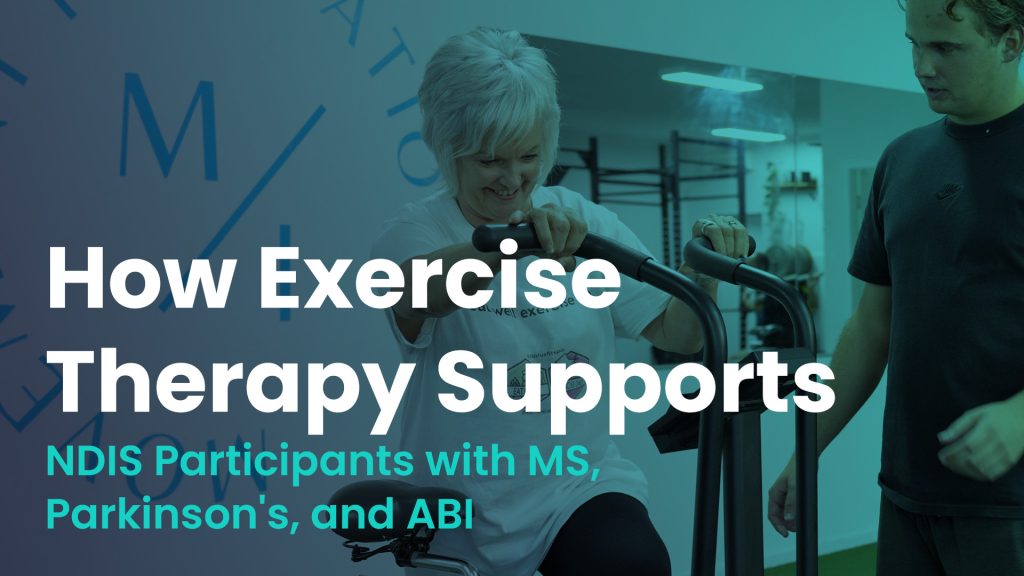
Living with conditions such as multiple sclerosis (MS), Parkinson’s disease, or an acquired brain injury (ABI) presents unique challenges. However, with the right support, individuals can lead fulfilling lives. Exercise therapy offers a tailored approach to managing these conditions, providing benefits that go beyond physical health. This blog explores how exercise therapy can support NDIS participants with MS, Parkinson’s, and ABI.
Helpful information on neurological conditions can be found here.
Overview of Conditions
- Multiple Sclerosis (MS): A chronic condition affecting the central nervous system, MS can cause fatigue, muscle weakness, and coordination problems.
- Parkinson’s Disease: A progressive neurological disorder that affects movement, causing tremors, stiffness, and balance issues.
- Acquired Brain Injury (ABI): Any brain injury occurring after birth, including traumatic brain injury or stroke, which can impact cognitive, physical, and emotional functions.
Benefits of Exercise for Each Condition
Exercise therapy offers targeted benefits for each condition:
- MS: Exercise can improve strength, balance, and coordination, helping manage symptoms like fatigue and muscle weakness.
- Parkinson’s: Regular physical activity can enhance mobility, reduce stiffness, and improve balance, which is crucial in managing Parkinson’s.
- ABI: Exercise helps in neuroplasticity, aiding the brain’s ability to adapt and recover, and improves overall physical function.
Recommended Exercise Types
Different conditions require different exercise approaches:
- For MS: Aerobic exercises (like swimming), strength training, and balance exercises.
- For Parkinson’s: Strength training, stretching, and exercises that focus on balance and gait training.
- For ABI: Tailored rehabilitation exercises that include a mix of aerobic, resistance, and cognitive exercises to improve overall recovery.
For more information on how we can help you with your NDIS journey, click here.
Case Studies and Testimonials
Consider Jane, an NDIS participant living with MS, who has greatly benefited from a personalised exercise program focusing on strength training and balance exercises. Her improved mobility and reduced fatigue have allowed her to engage more fully in her daily activities. Meanwhile, Michael, living with Parkinson’s, reports that regular exercise has helped him maintain his independence longer and manage symptoms more effectively.
How to Access Services Under NDIS
NDIS participants can access exercise therapy through several steps:
- Ensure Your Plan Covers Exercise Therapy: Check if your NDIS plan includes funding under categories like “Improved Daily Living” or “Improved Health and Wellbeing.”
- Consult with a Healthcare Provider: Get a referral or recommendation from your doctor or specialist to guide the type of exercise therapy you need.
- Find a Qualified Exercise Physiologist: Work with an NDIS-registered provider who understands your condition and can tailor a program to your needs.
Exercise therapy offers a practical, effective way for NDIS participants with MS, Parkinson’s, or ABI to manage their conditions and improve their quality of life. With personalised programs, participants can see improvements in mobility, strength, and overall wellbeing.
To learn more how we can help you, contact us today!
